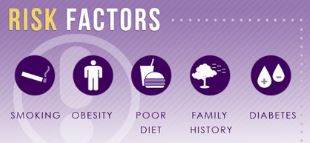Creating Hope.
Supporting a Cure.
Supporting a Cure.


___________________________________________________________________________________________________
Pancreatic Cancer Association of WNY PO Box 24580 Rochester, NY 14624

References: www.pancan.org, www.cancer.gov and www.pancreaticalliance.org
Early Detection is the Key! Research is Vital!
Facts
- Pancreatic cancer is the nation's 3rd leading cancer killer behind lung and colon cancer. More people now die from pancreatic cancer than breast cancer.
- Of the top 10 cancer killers, pancreatic cancer continues to have the lowest five year survival rates.
- The 5-year survival rate over the past 40 years has remained almost nearly unchanged, and recently has finally reached 10%, while huge strides have been made in fighting other cancers. The 5-year survival rate for all other cancers rose from 49% to 67% and some are 90% or higher.
- In 2021, 60,430 men and women will be diagnosed with pancreatic cancer.
- In 2021, 48,220 pancreatic cancer patients will die from the disease.
- Only about 2% of the National Cancer Institute's budget is allocated for pancreatic cancer research (the lowest funding
of all major cancers). - Pancreatic Cancer is referred to as the silent killer because it is hard to detect until it is in the late stages

Risk Factors
- Approximately 10% of pancreatic cancer cases are related to a family history of the disease. Individuals who smoke and have a family history of pancreatic cancer are at risk of developing pancreatic cancer up to 10 years earlier than their previously diagnosed family member(s).
- Chronic pancreatitis, particularly at a younger age, increases the risk of developing pancreatic cancer.
- African-Americans have a higher incidence of pancreatic cancer compared to individuals of Asian, Hispanic or Caucasian descent.
- There is also a higher incidence of pancreatic cancer among Ashkenazi Jews, possibly due to a mutation involving the breast cancer (BRCA2) gene that is found in about 1% of individuals of this background.
- Slightly more men are diagnosed with pancreatic cancer than women.
- Pancreatic cancer is 2 times more likely to occur in people who have diabetes than in people who do not have diabetes.
- A diet high in red meats, animal fats, processed meats, and carbohydrates is thought to increase the risk of developing pancreatic cancer.
- A diet high in fruits and vegetables may decrease the risk.
- For people who are considered clinically obese, there may be a significantly increased risk of developing pancreatic cancer.